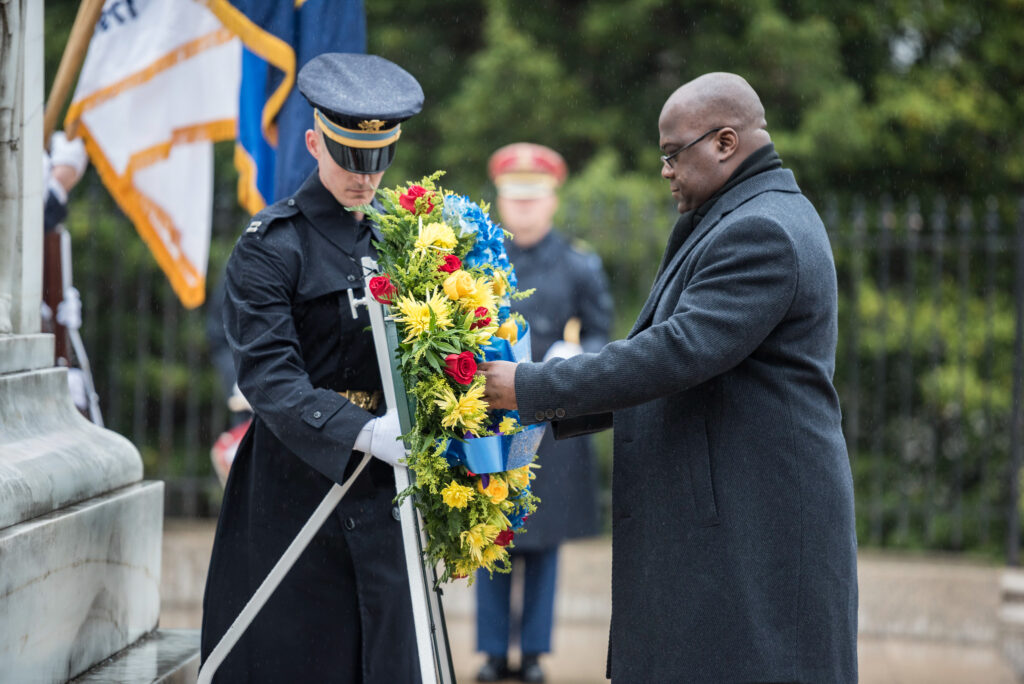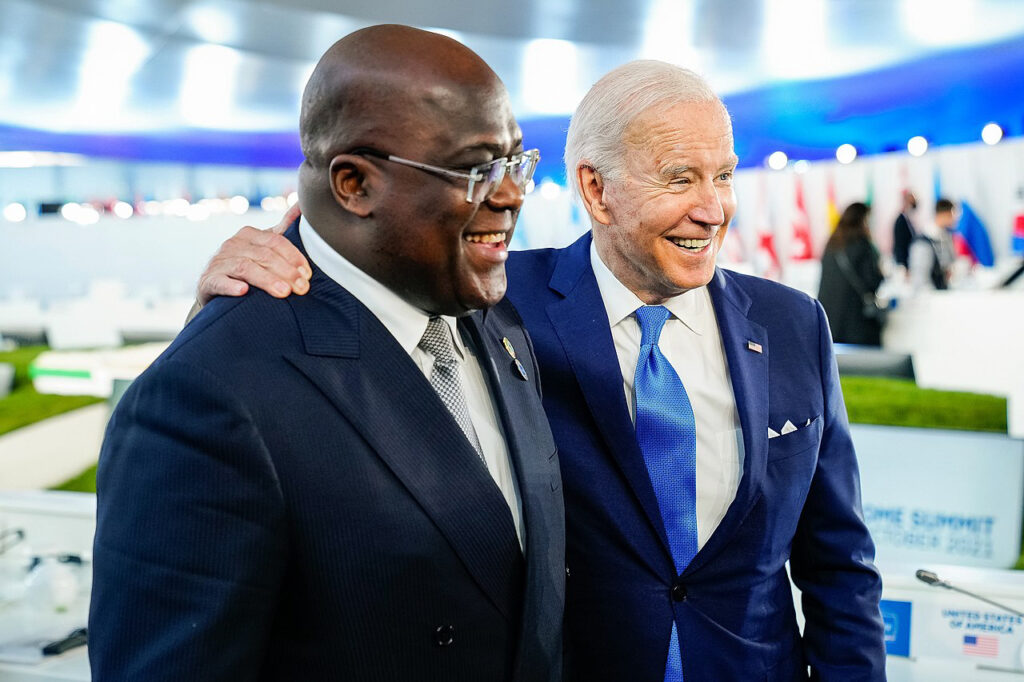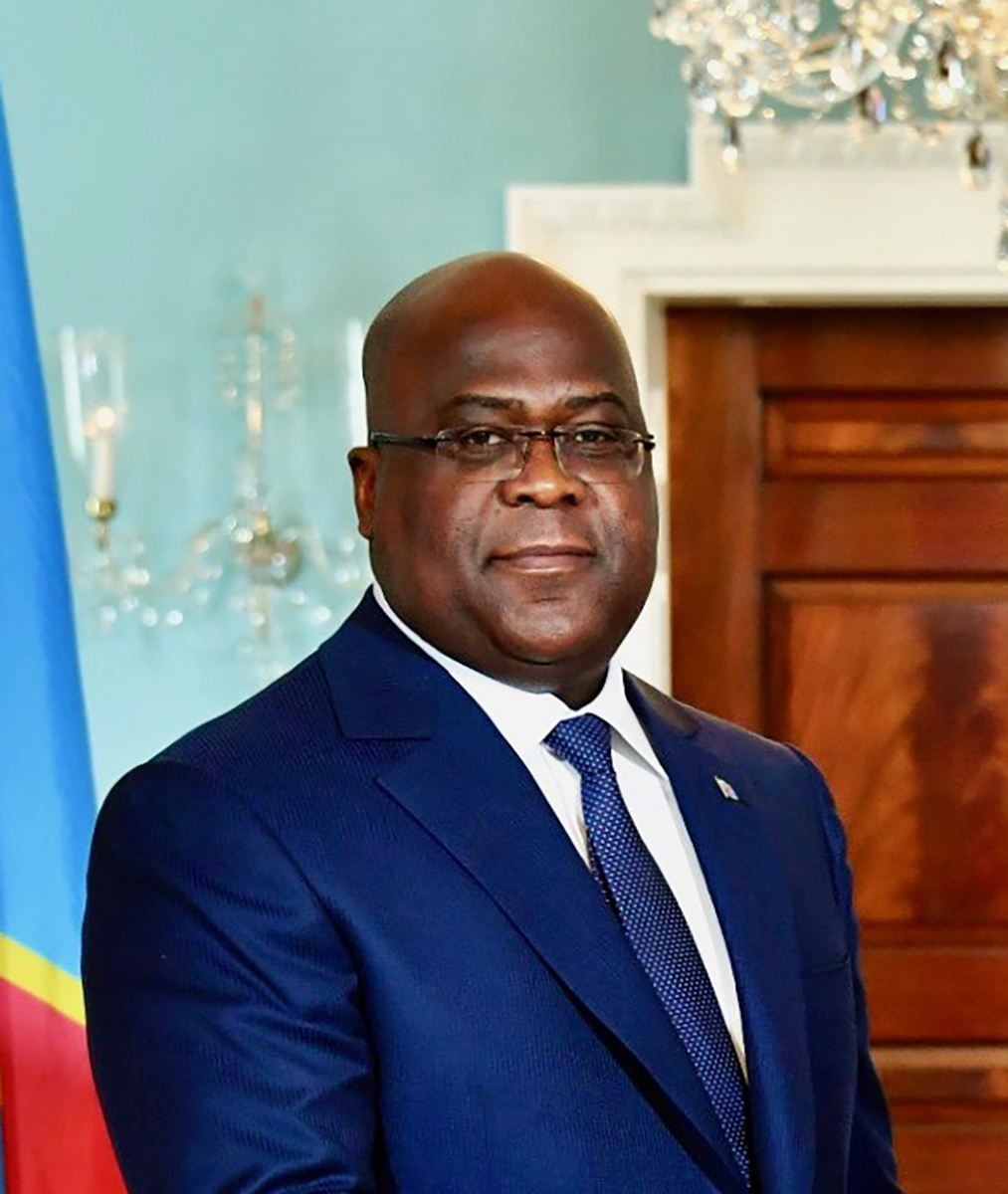Felix Tshisekedi, the current President of the Democratic Republic of the Congo (DRC) was born Félix Antoine Tshisekedi Tshilombo on June 13, 1963, in Kinshasa just three years after the DRC gained its independence from Belgium. He identifies with the Luba people. His parents were Étienne Tshisekedi, who served as the prime minister of Zaire (now the DRC) on three occasions, and Marthe Kasalu Jibikila.
In 1985, Tshisekedi worked and lived in Brussels, Belgium, where he became an active participant in the Belgium wing of the Union for Democracy and Social Progress UDSP, the most powerful political party in the DRC. After returning to his home nation, he was named the UDSP National Secretary for external relations. Tshisekedi’s extensive involvement with the party led to his becoming vice secretary-general in 2016, and in 2018, he became UDSP’s principal leader.

In 1995, Félix married Denise Nyakéru Tshisekedi from Bukavu, an eastern city in DRC. After they divorced in 2001, he married Marthe Kasalu Jibikila and the couple had two sons, Félix Tshisekedi and Christian Tshisekedi.
In 2018, after the death of his father, Étienne Tshisekedi, Félix Tshisekedi was nominated by the UDSP to run for President. He won the majority of the votes in the subsequent presidential election and was sworn in on January 24, 2019. Tshisekedi became the nation’s fifth president and the first president to peacefully transition into power.

Tshisekedi, who also chairs the African Union (AU), met U.S President Joseph Biden while both were attending the G20 Summit in Rome, Italy, on October 30 and 31, 2021. Tshisekedi and Biden discussed the protection of the Congo Basin rainforest which is vitally important to the world’s atmosphere and the commitment of the U.S. and the AU to advance global health security and comprehensively combat the COVID-19 pandemic. The two leaders specifically discussed the possibility of the AU partnering with the U.S. drug manufacturer Moderna to produce up to 110 million COVID-19 vaccine doses for the African continent.
Also in 2021, Tshisekedi signed a decree that pardoned more than 700 political prisoners who had been incarcerated by his predecessor, DRC President Joseph Kabila Kabange, keeping a campaign promise he had made while running for President. He also encouraged all DRC political exiles to return home. Because of his concern for the political and civil rights of the DRC’s citizens, a position rare among African political leaders, Tshisekedi was favorably recognized by Amnesty International for restoring human rights and dignity in DRC.

